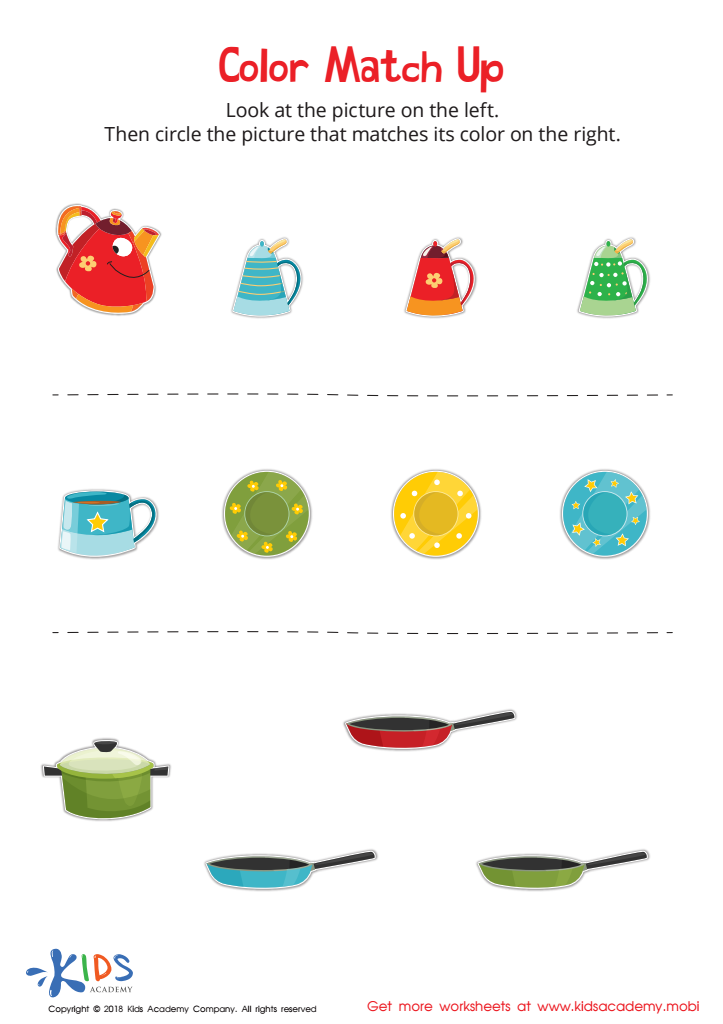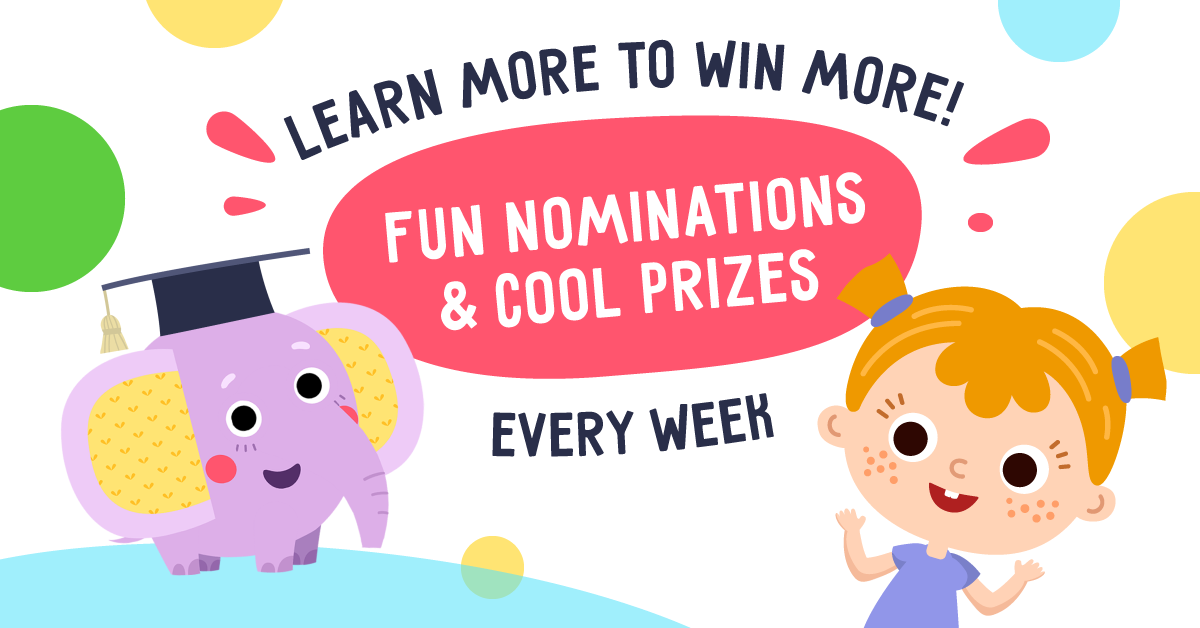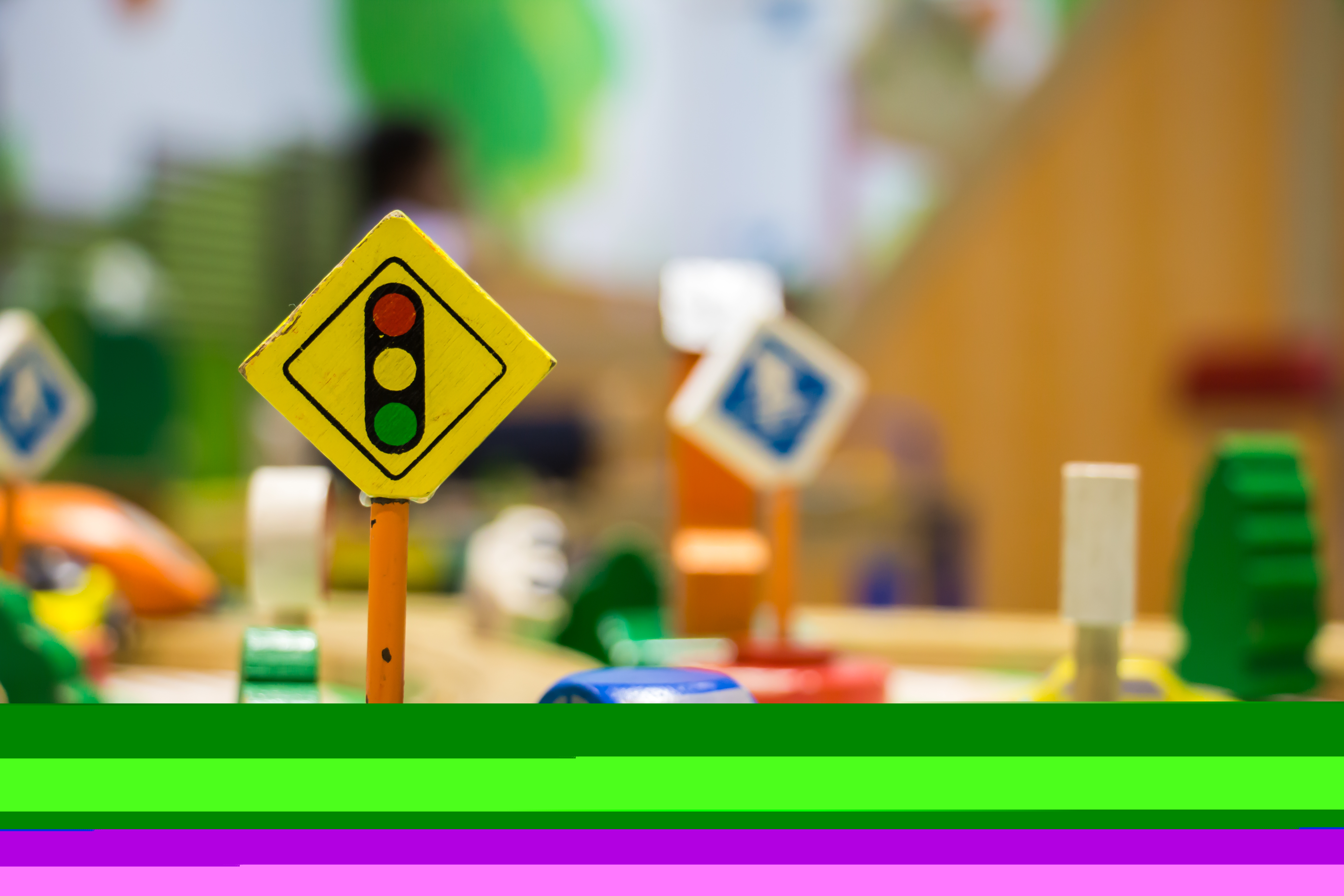Matching skills Normal Worksheets for Ages 4-6
14 filtered results
-
From - To
Explore our engaging Matching Skills Normal Worksheets designed specifically for children aged 4-6! These interactive activities help young learners develop essential cognitive abilities through fun and colorful matching exercises. Our worksheets feature familiar objects, characters, and themes to capture your child’s interest while promoting critical thinking and recognition skills. Perfect for preschool or kindergarten learning environments, these printable resources encourage self-paced learning and can easily be integrated into home education. Foster your child's confidence and creativity as they enhance their matching skills alongside their peers. Start the journey to essential learning with our vibrant and educational worksheets today!
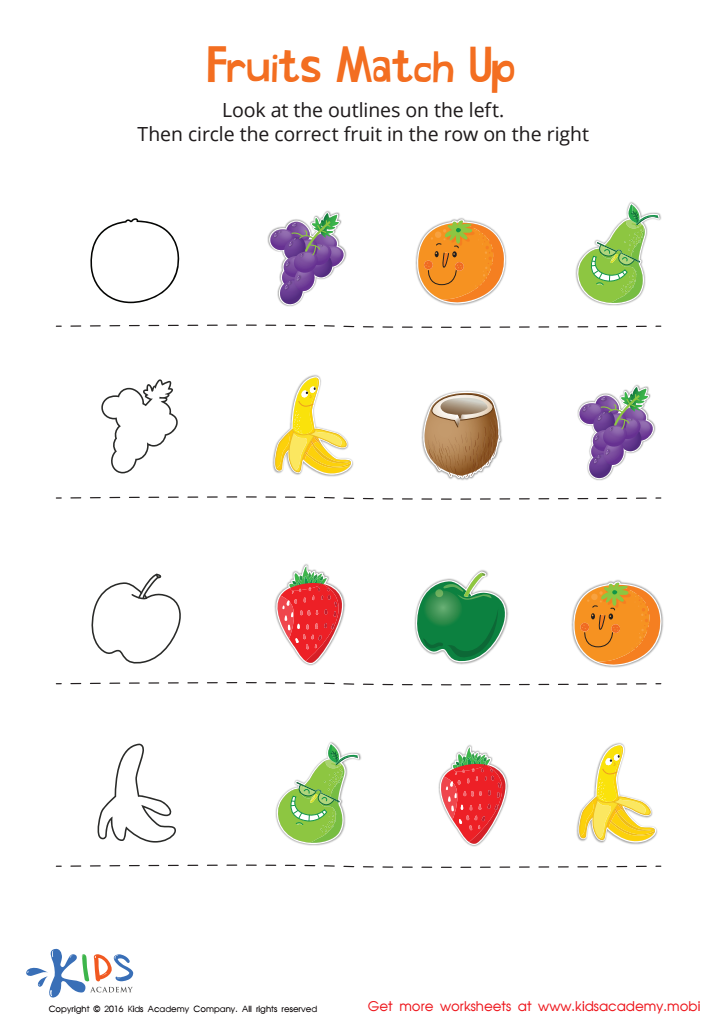

Fruits Match Up Worksheet
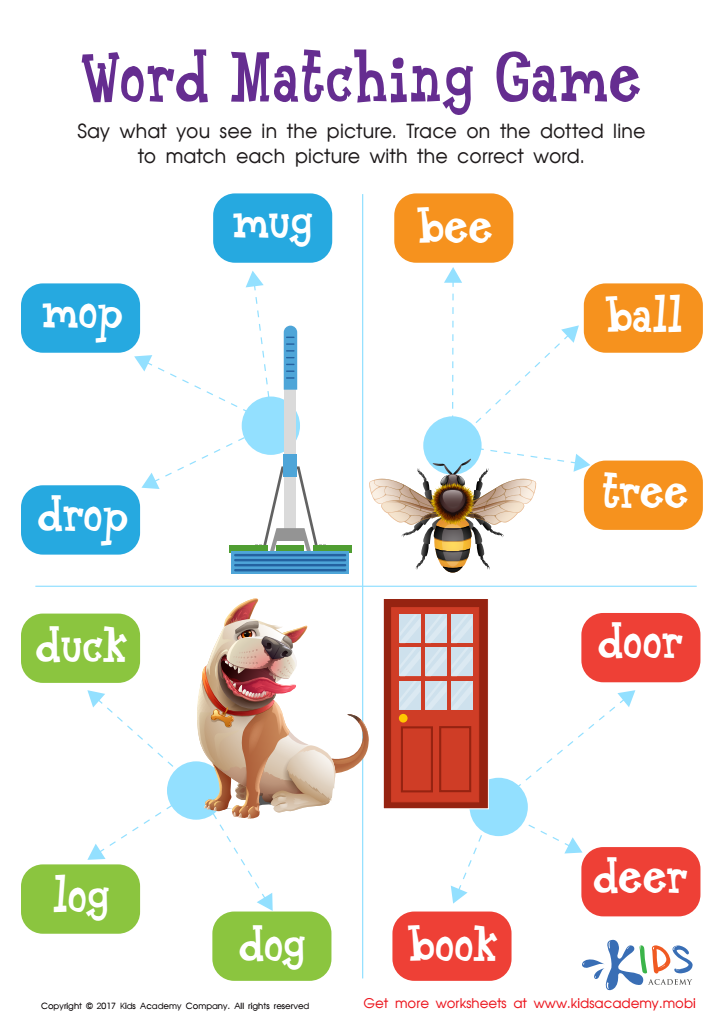

Word Matching Game Worksheet
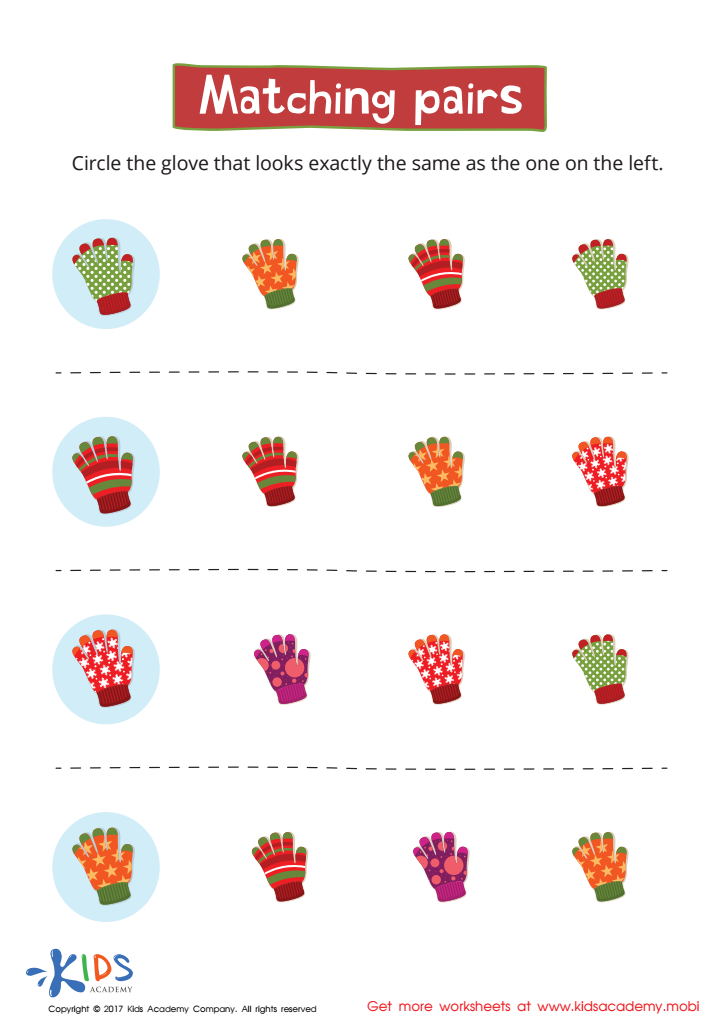

Matching: Matching Pairs Worksheet
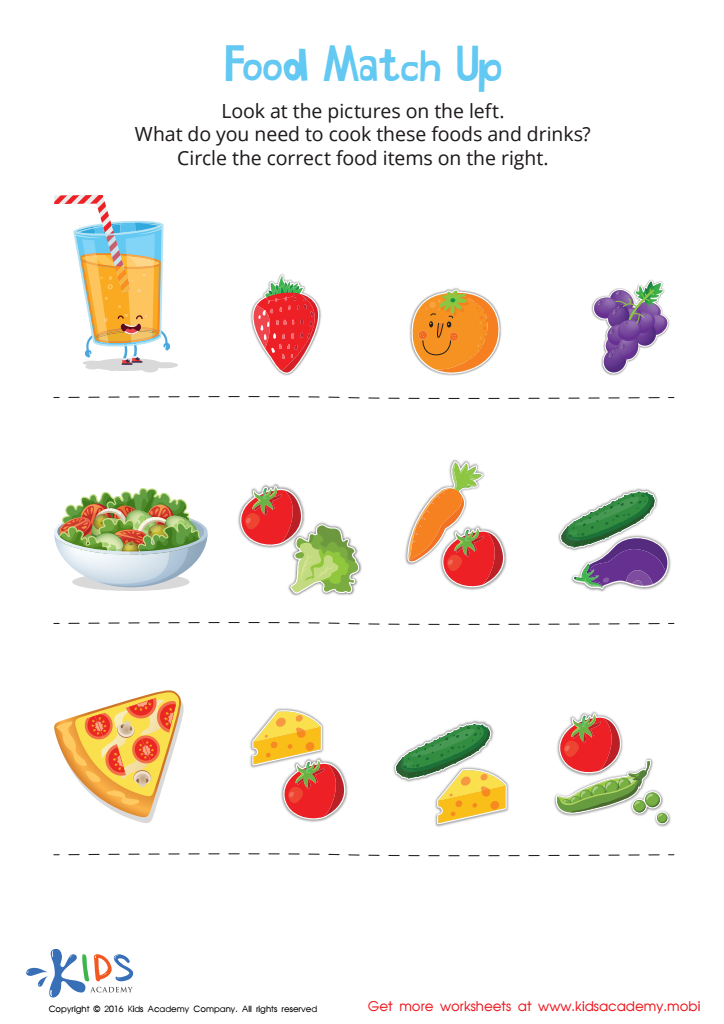

Food Match Up Worksheet
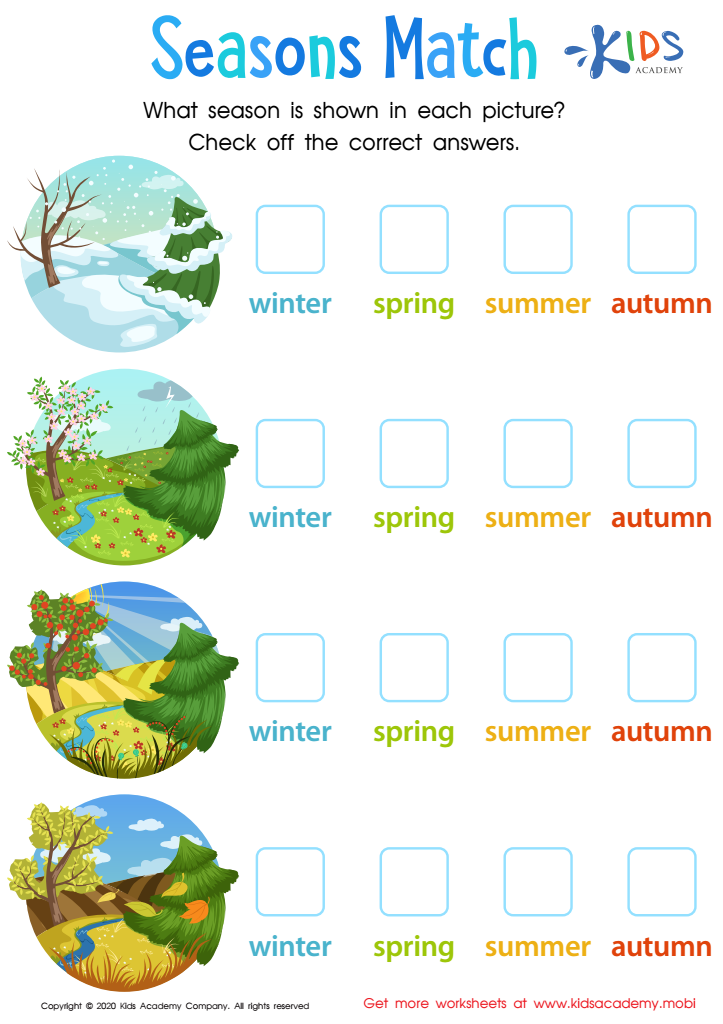

Seasons Match Worksheet
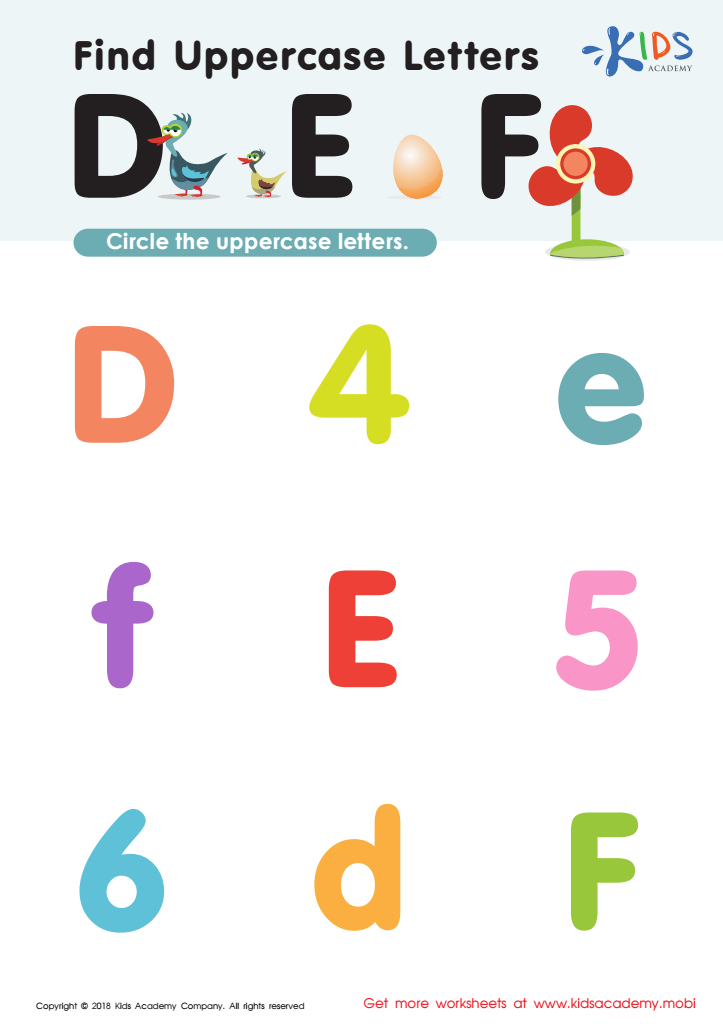

Find Uppercase Letters D, E, and F Worksheet
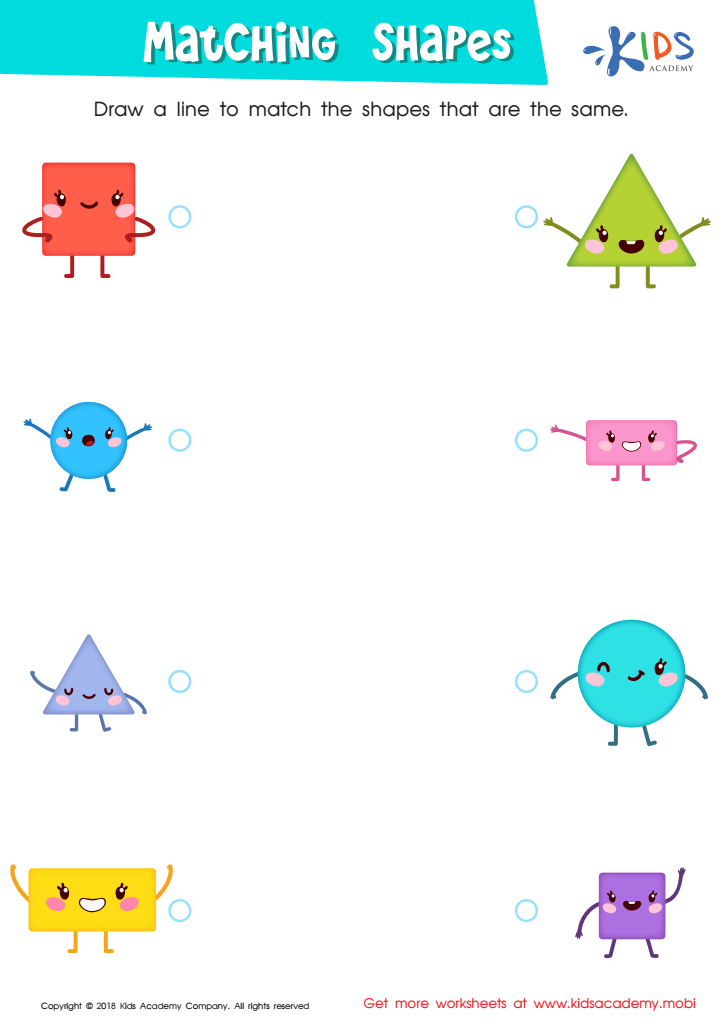

Matching Shapes Worksheet
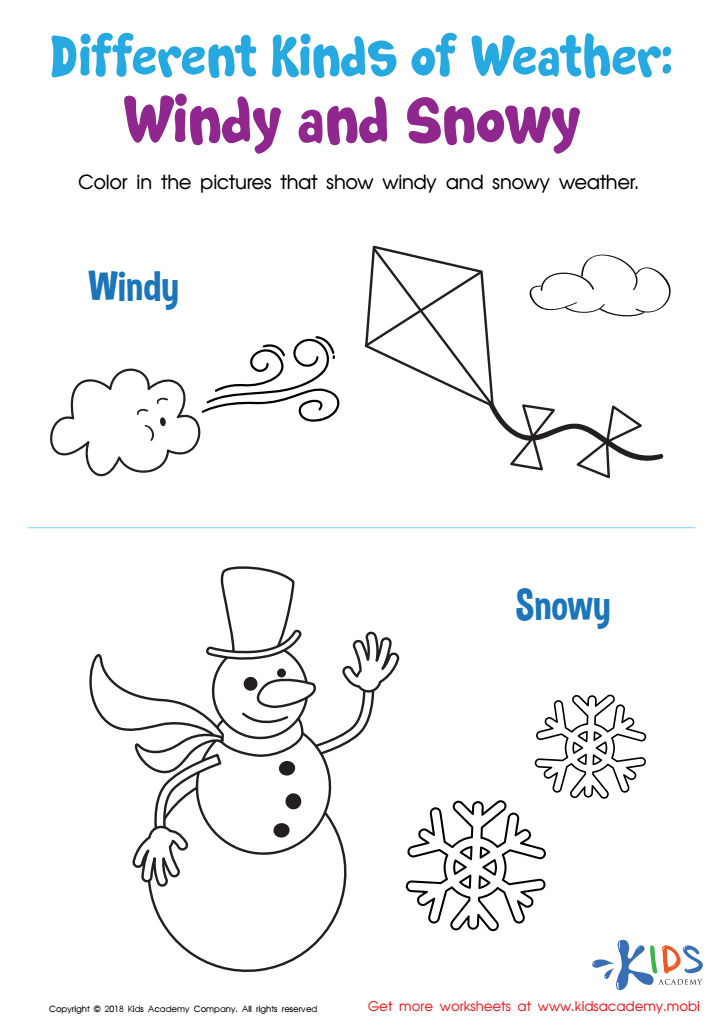

Different Kinds of Weather: Windy and Snowy Worksheet
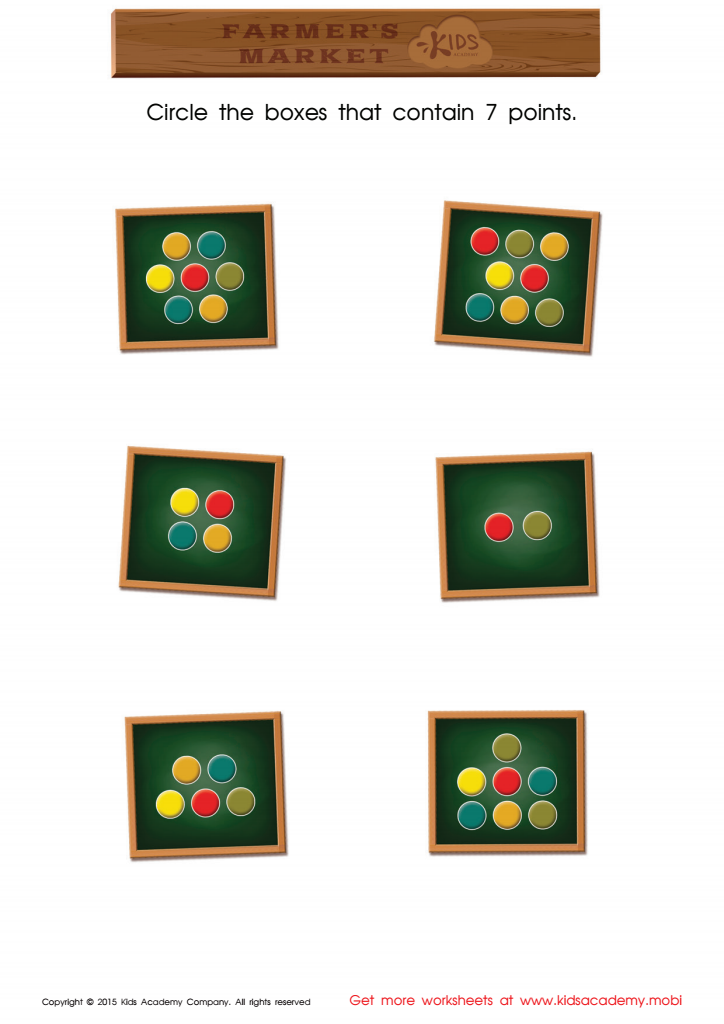

Count and Match Points 7 Math Worksheet
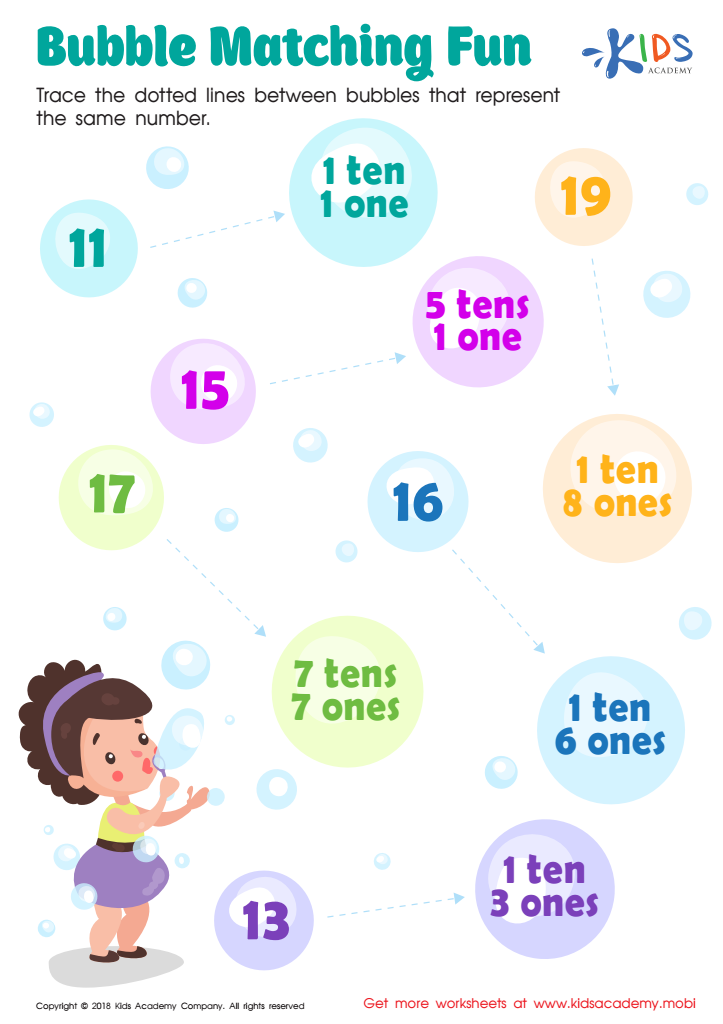

Bubble Matching Fun Worksheet
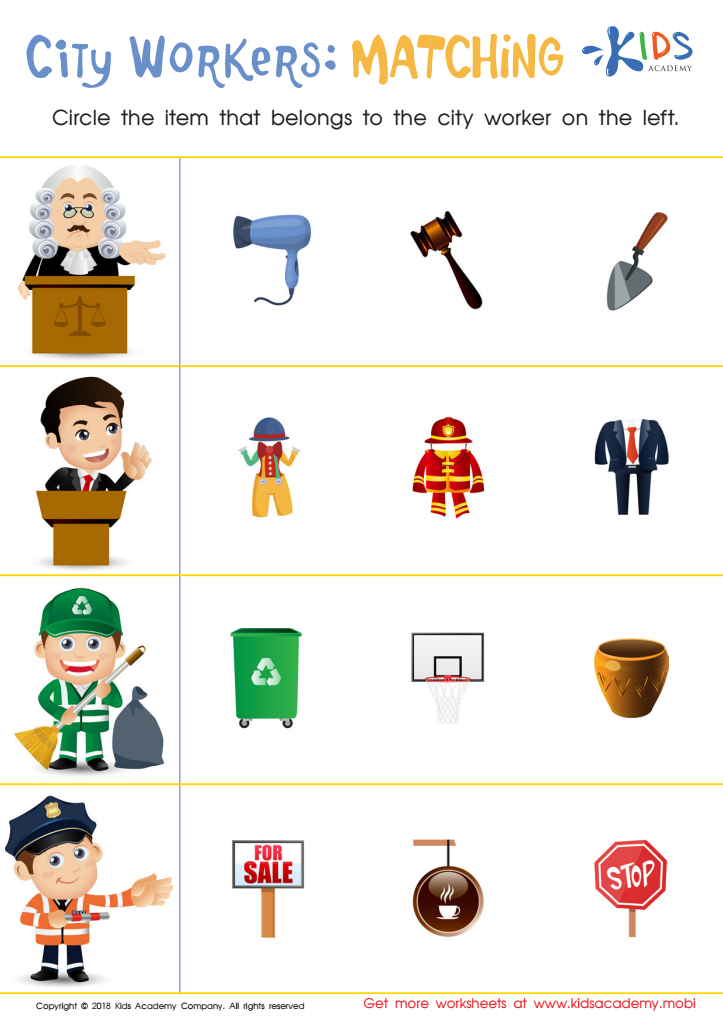

City Workers: Matching Worksheet
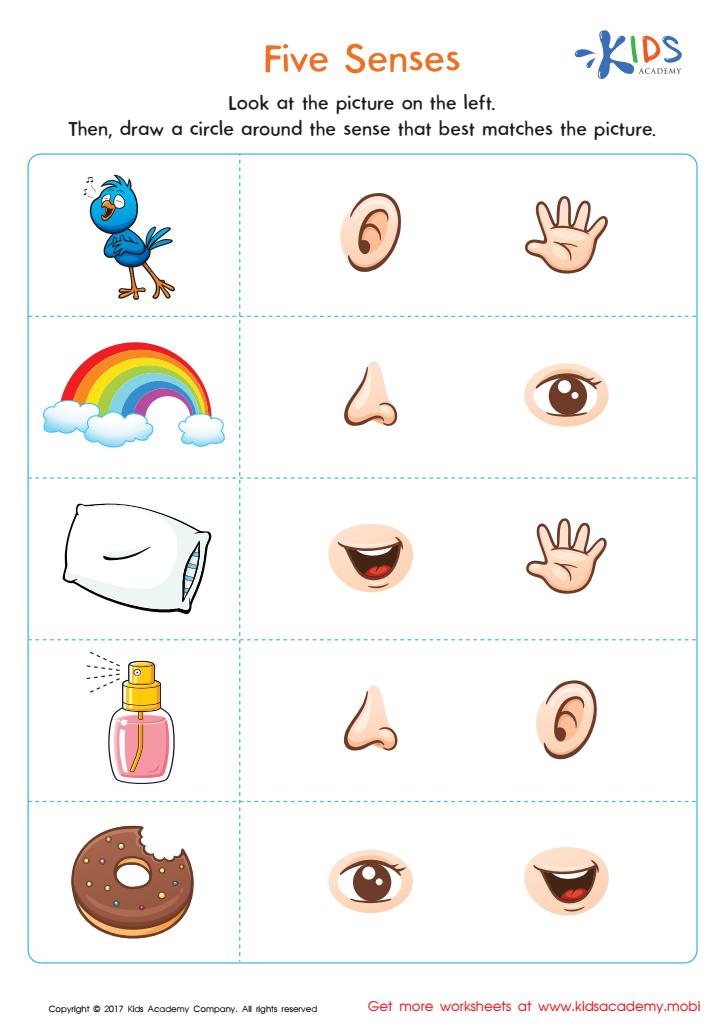

Five Senses Printable
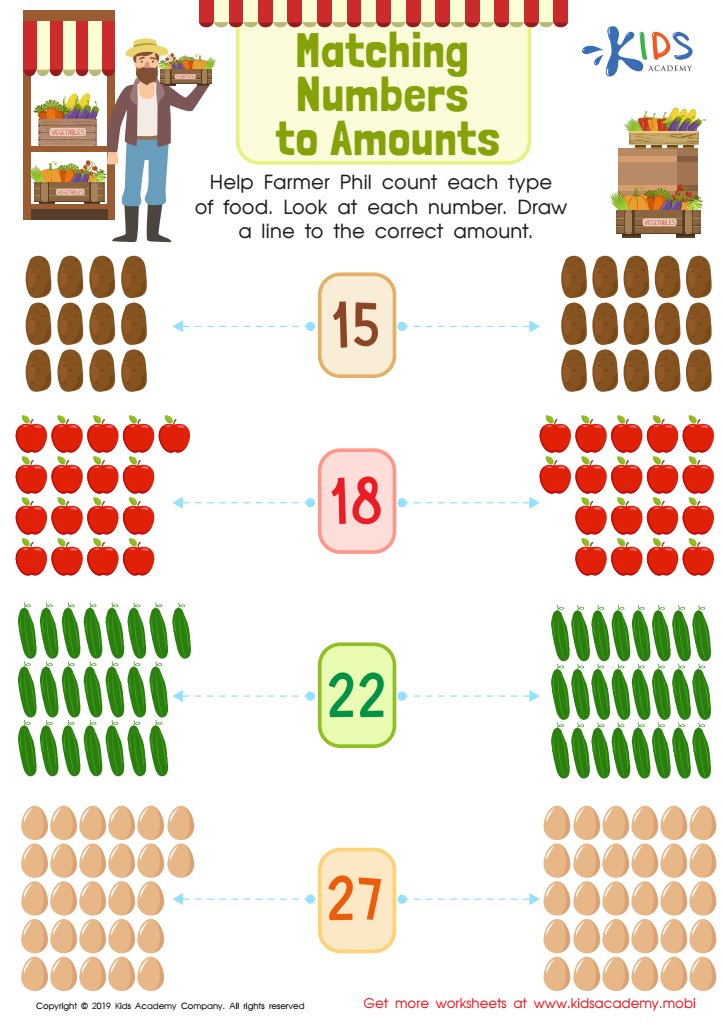

Matching Numbers to Amounts Worksheet
Matching skills are essential for children aged 4-6 as they serve as foundational cognitive abilities that facilitate learning across various subjects. During this developmental phase, children are naturally curious and eager to engage with their environment. By nurturing their matching skills, parents and teachers can significantly contribute to this exploration.
Firstly, matching activities enhance early cognitive skills, including memory and pattern recognition. These skills are crucial as they lay the groundwork for more complex problem-solving and critical thinking abilities later on. For instance, when children learn to identify and pair similar objects or images, they are developing important analytical skills.
Secondly, matching skills support language development. When children describe the attributes of the items they are matching, they improve their vocabulary and communication skills, fostering effective language usage.
Additionally, these skills promote social interaction. Collaborative matching games encourage teamwork and communication between peers, which is vital for social growth.
Finally, placing emphasis on matching skills aligned with educational standards helps prepare children for a structured learning environment, making the transition to formal education smoother. Ultimately, nurturing these skills in young children creates a solid foundation for overall development and academic success.
 Assign to My Students
Assign to My Students
